- Culture
- 22 Sep 25
Thousands gather in Dublin for national Irish language rights march

The protest included musical performances from Ispíní na hÉireann, Huartan, Breanndán Ó Beaglaoich and Niamh Ní Dhubhgháin.
Thousands of people gathered in Dublin on Saturday for a national protest calling for Irish language and Gaeltacht reforms.
'CEARTA: National Protest for the Irish Language and the Gaeltacht' saw demonstrators march from Parnell Square to Leinster House, where they held speeches and musical performances.
Organisers estimate upwards of 25,000 people participated, with many travelling from across the country to Dublin on buses just for the march.
Protesters represented a diverse variety of demographics: Gaeltacht groups, college students, young children, parents, activists, teachers, artists and more.
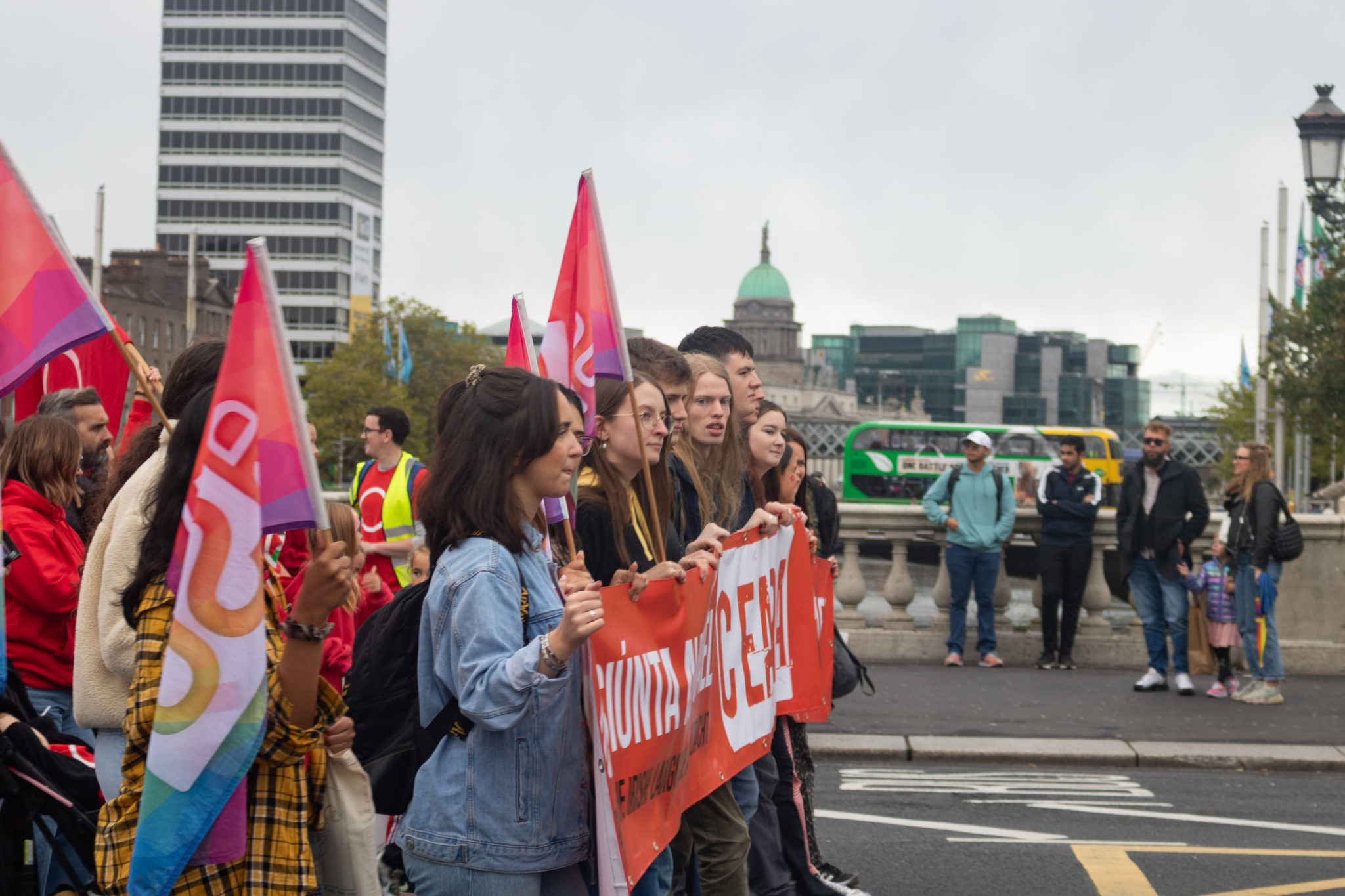 The CEARTA: National Protest for the Irish Language and the Gaeltacht in Dublin on September 20, 2025. Photo: Chloe Craft.
The CEARTA: National Protest for the Irish Language and the Gaeltacht in Dublin on September 20, 2025. Photo: Chloe Craft.The protest demanded the government address inadequate funding for the Irish language and the Gaeltacht, poor access to quality Irish education, insufficient rights for the Irish-speakers and housing issues in Gaeltacht communities.
It was the first national march for the language in over a decade.
Among those taking the stage at Leinster House were musical acts Ispíní na hÉireann, Huartan, Breanndán Ó Beaglaoich and Niamh Ní Dhubhgháin.
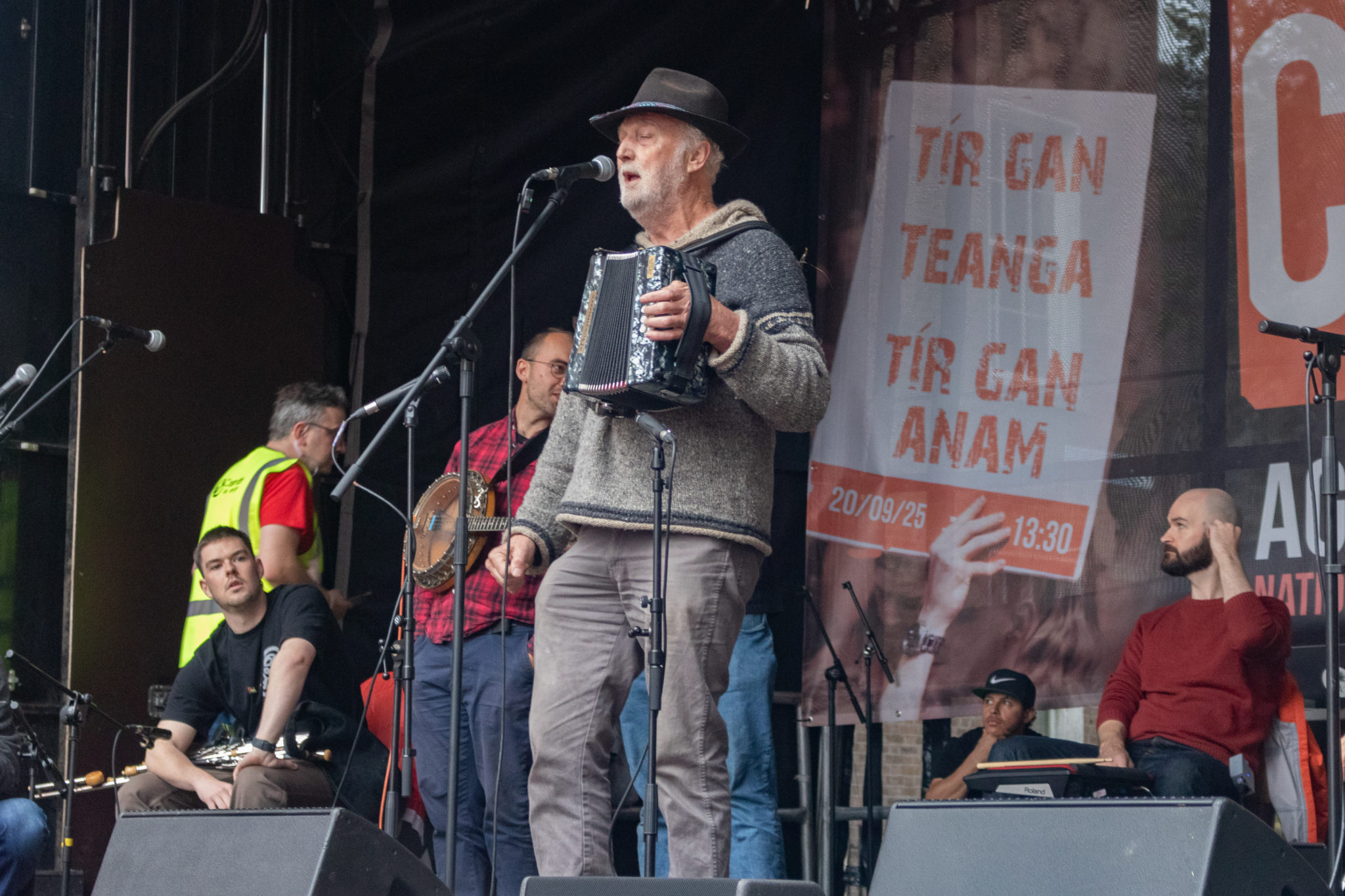 Breanndán Ó Beaglaoich performing at CEARTA: National Protest for the Irish Language and the Gaeltacht in Dublin on September 20, 2025. Photo: Chloe Craft.
Breanndán Ó Beaglaoich performing at CEARTA: National Protest for the Irish Language and the Gaeltacht in Dublin on September 20, 2025. Photo: Chloe Craft.Ní Dhubhgháin performed an Irish-language version of 'Killeagh' by Kingfishr, changing the lyrics to discuss Gaeltachts and take a jab at AirBnB's exacerbation of the housing crisis.
Kate Ní Dhúbhlaoich, Communications Executive at Conradh na Gaeilge, told Hot Press all the artists were thrilled to participate.
"These bands are great supporters of the Irish language, a lot of their music is in the Irish language," Ní Dhúbhlaoich said.
"So when we reached out to a lot of these bands and artists to join us today, they were more than happy to join us here and to be part of the movement."
Ní Dhúbhlaoich said music was a particularly important aspect to include in the demonstration.
"The Irish language ties us in with our culture, and music is part of our culture here in Ireland," Ní Dhúbhlaoich said.
"We heard the amazing Niamh Ní Dhubhgháin from the Gaeltacht area singing her own version of 'Killeagh' as Gaeilge. And I think that shows the power of music, especially when it's in our first national language. It really ties all our culture in one, the language and the ceoil. It's just been really nice to see as Gaeilge."
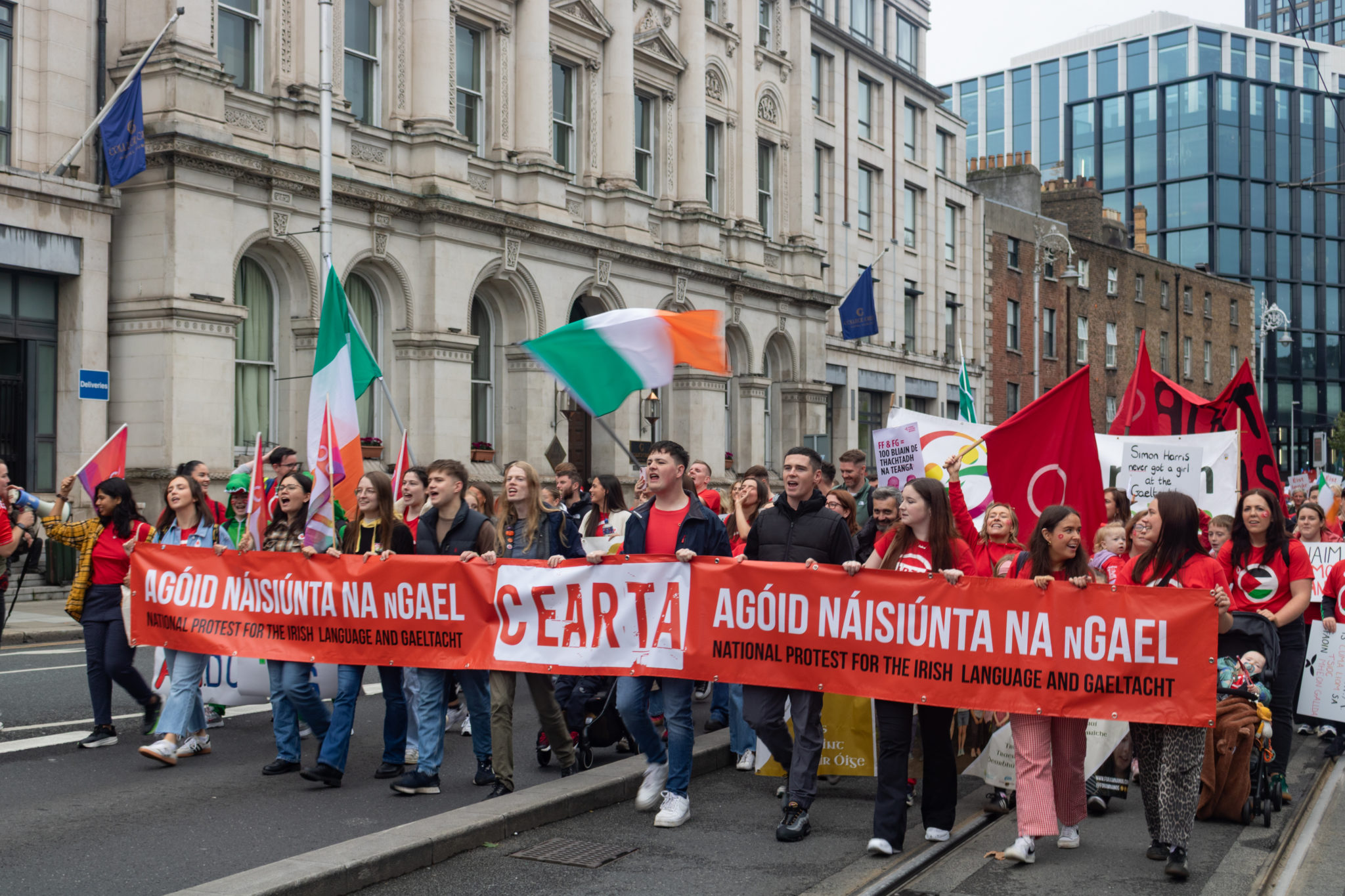 The CEARTA: National Protest for the Irish Language and the Gaeltacht in Dublin on September 20, 2025. Photo: Chloe Craft.
The CEARTA: National Protest for the Irish Language and the Gaeltacht in Dublin on September 20, 2025. Photo: Chloe Craft.Along with music, a series of speakers took the stage, including journalist and Irish language advocate Eibhlín Ní Bhroin, Law and Irish student at University College Dublin Rónán Ó hÍcí, Gaeltacht housing lobbyist Adhna Ní Bhraonáin and Conradh na Gaelic president Ciarán Mac Giolla Bhéin.
Delivering the only speech fully in English was Heulyn Rees, a Welsh language teacher and CEO of the Welsh language initiative Menter Caerdydd. Rees spoke to Hot Press after his speech about the parallels between movements for the Welsh and Irish languages.
"One thing that's been fantastic to come over from Wales to join this rally here today is the profile, the age demographic of the demonstrators," Rees said.
"It's clear to me there are far more people here under the age of 20 than are over the age of 70, and that must be something that's really encouraging and something to be built on."
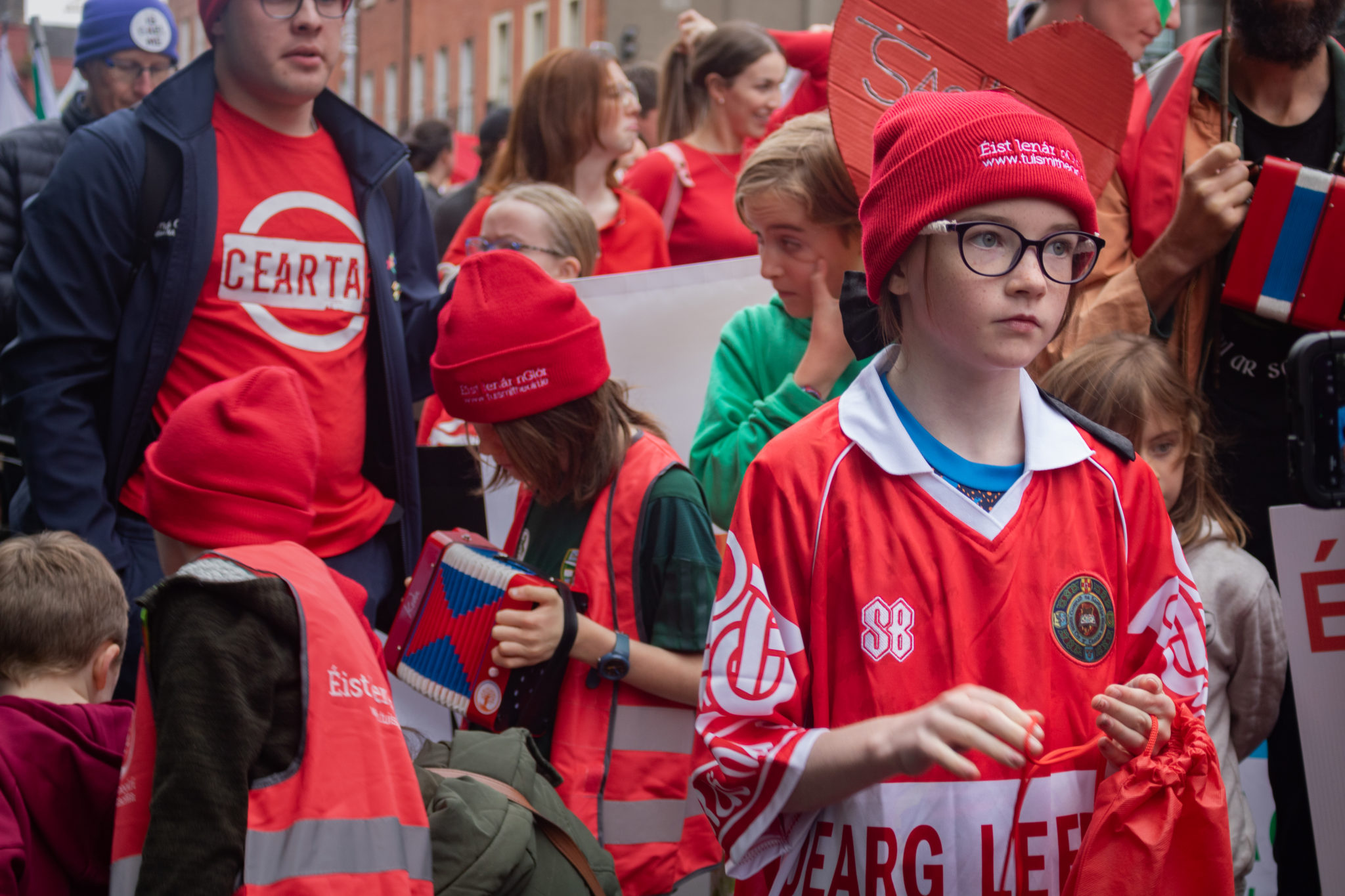 The CEARTA: National Protest for the Irish Language and the Gaeltacht in Dublin on September 20, 2025. Photo: Chloe Craft.
The CEARTA: National Protest for the Irish Language and the Gaeltacht in Dublin on September 20, 2025. Photo: Chloe Craft.Rees said there are "plenty of Welsh language bands" who have risen to popularity recently. Some popular bilingual and Welsh-language groups include Cardiff rap rock group Astroid Boys, experimental electronic band Llwybr Llaethog, Gwynedd rapper Sage Todz and rap duo Lloyd and Dom James
"It's been a bit of a revival, very similar to you in Ireland with KNEECAP," Rees said.
"We have festivals that popped up all over Wales in the last ten years, I know there's a good circuit for Welsh language bands to perform. But I've got to say, the Irish bands seem a lot more political, which is fantastic to see, really."
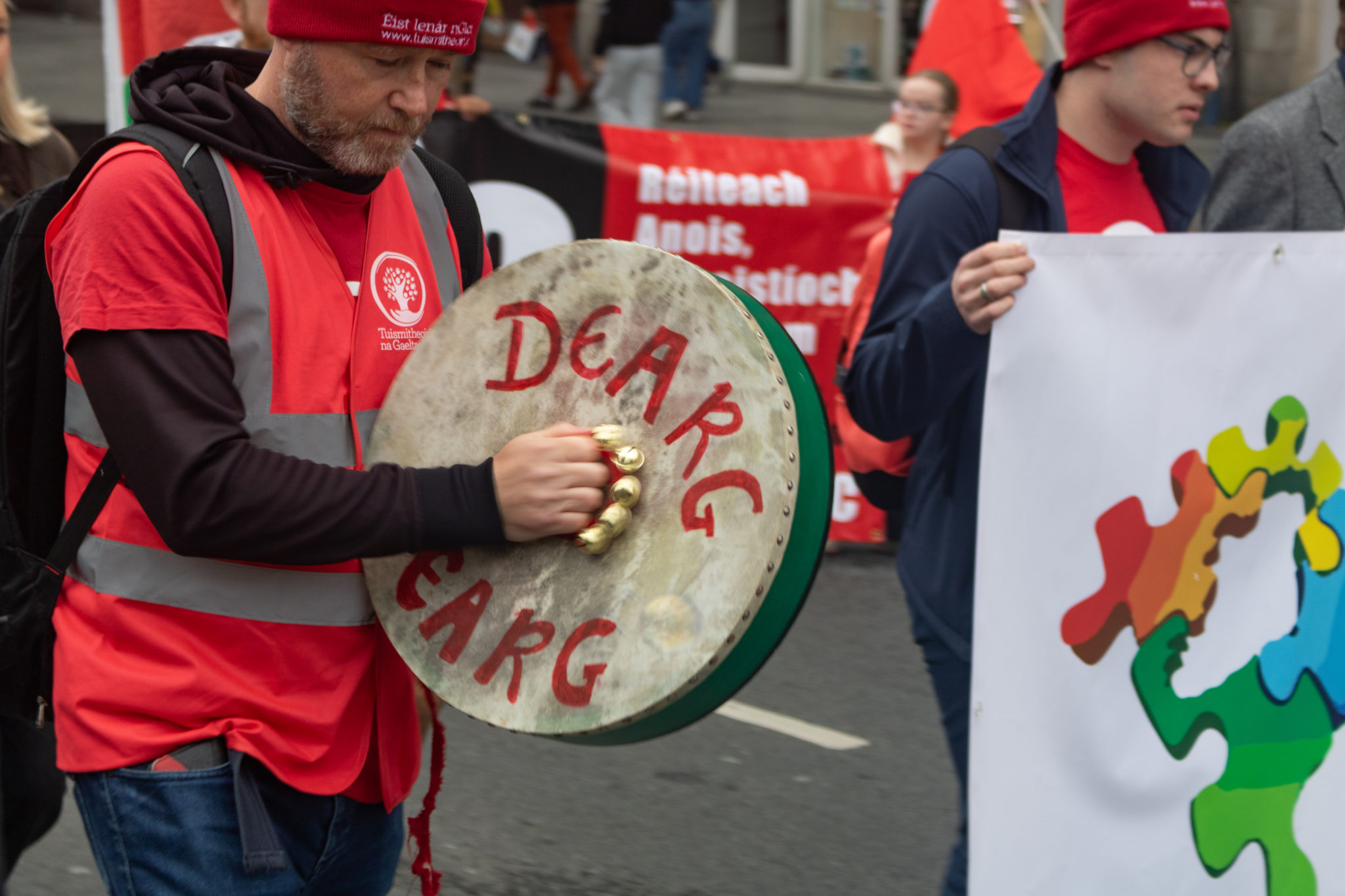 The CEARTA: National Protest for the Irish Language and the Gaeltacht in Dublin on September 20, 2025. Photo: Chloe Craft.
The CEARTA: National Protest for the Irish Language and the Gaeltacht in Dublin on September 20, 2025. Photo: Chloe Craft.He added the Welsh-language National Eisteddfod is the largest cultural festival in Europe, in any language.
"I think music is one of the better ways and forms of culture to break down barriers," Rees said.
"Even when people don't understand the words, they understand the sentiment and the feeling. So it's a really important tool to communicate a message, especially to young people."
During his speech, Rees described growing up in Cardiff in the 1980s when there was only one Welsh-medium primary school and no secondary school. Today, there are 17 Welsh-medium primary schools and three secondary schools with "unprecedented demand" for a fourth.
Earlier speakers had discussed the increasing number of students (one in 20 secondary school children) who are requesting exemptions from studying Irish, calling for greater provision of Irish-medium education to satisfy demand from those who do want to learn the language.
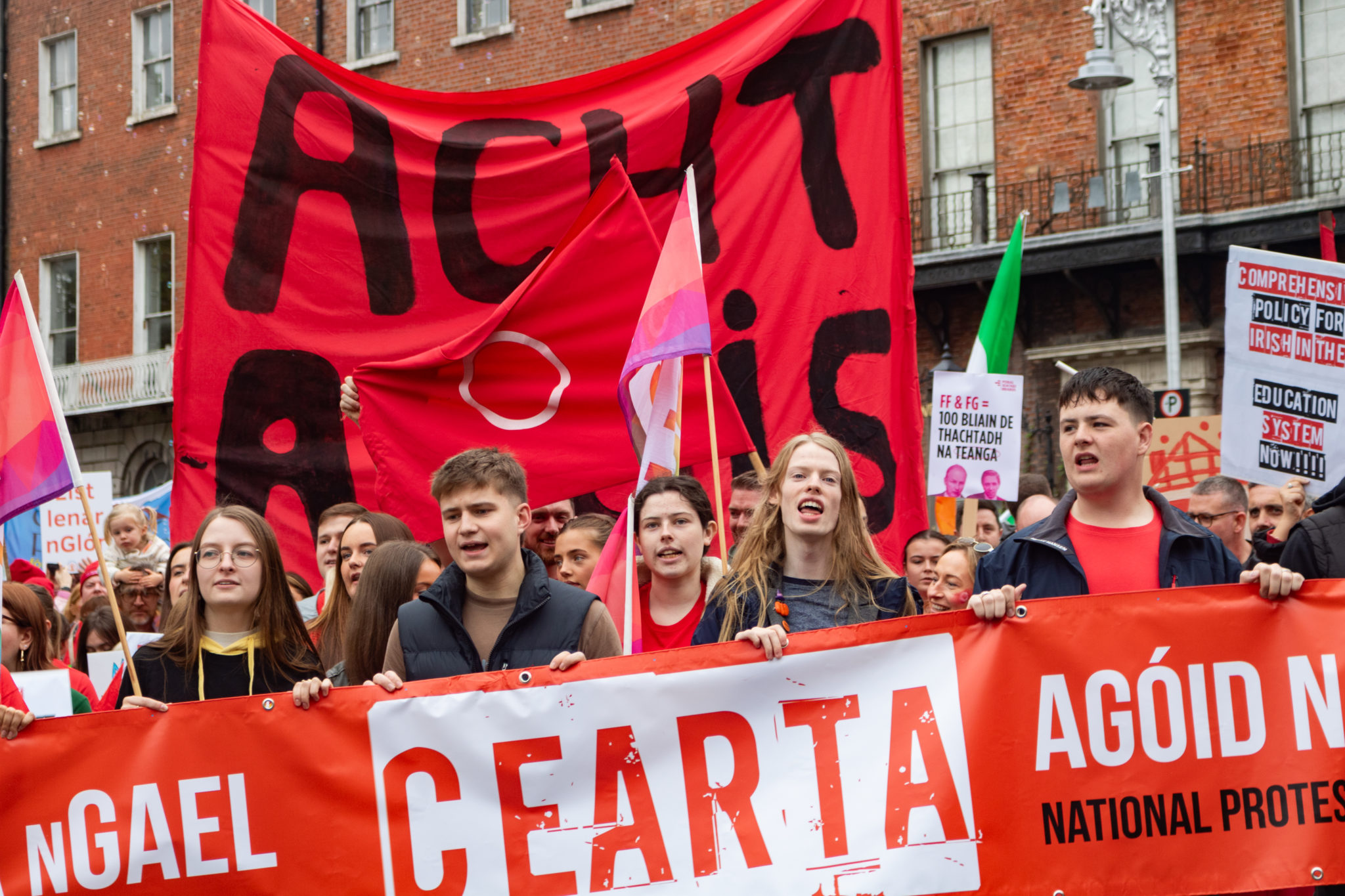 The CEARTA: National Protest for the Irish Language and the Gaeltacht in Dublin on September 20, 2025. Photo: Chloe Craft.
The CEARTA: National Protest for the Irish Language and the Gaeltacht in Dublin on September 20, 2025. Photo: Chloe Craft.Rees said he hopes the growth in language learning interest seen in Wales is reflected in Ireland, telling the crowd, "Cymru gyda chi (English: Wales is with you) because your fight is our fight."
"For any language to thrive, it must be supported not just by words and gestures but through legislation, investment and meaningful opportunities to use the language," said Rees in his speech.
"The Irish language, it’s not a relic, it’s not a museum piece to be kept behind glass. It is a living, breathing soul of the people. It is the rhythm of your poetry, the fire in your protest and the lullaby in your cradle, and it deserves not just respect but rights.
"Never whisper Irish. Shout it, teach it, demand it. Let it ring from Belfast to Kerry, from Derry to Dublin. Let it be the voice of your future and not just your past."
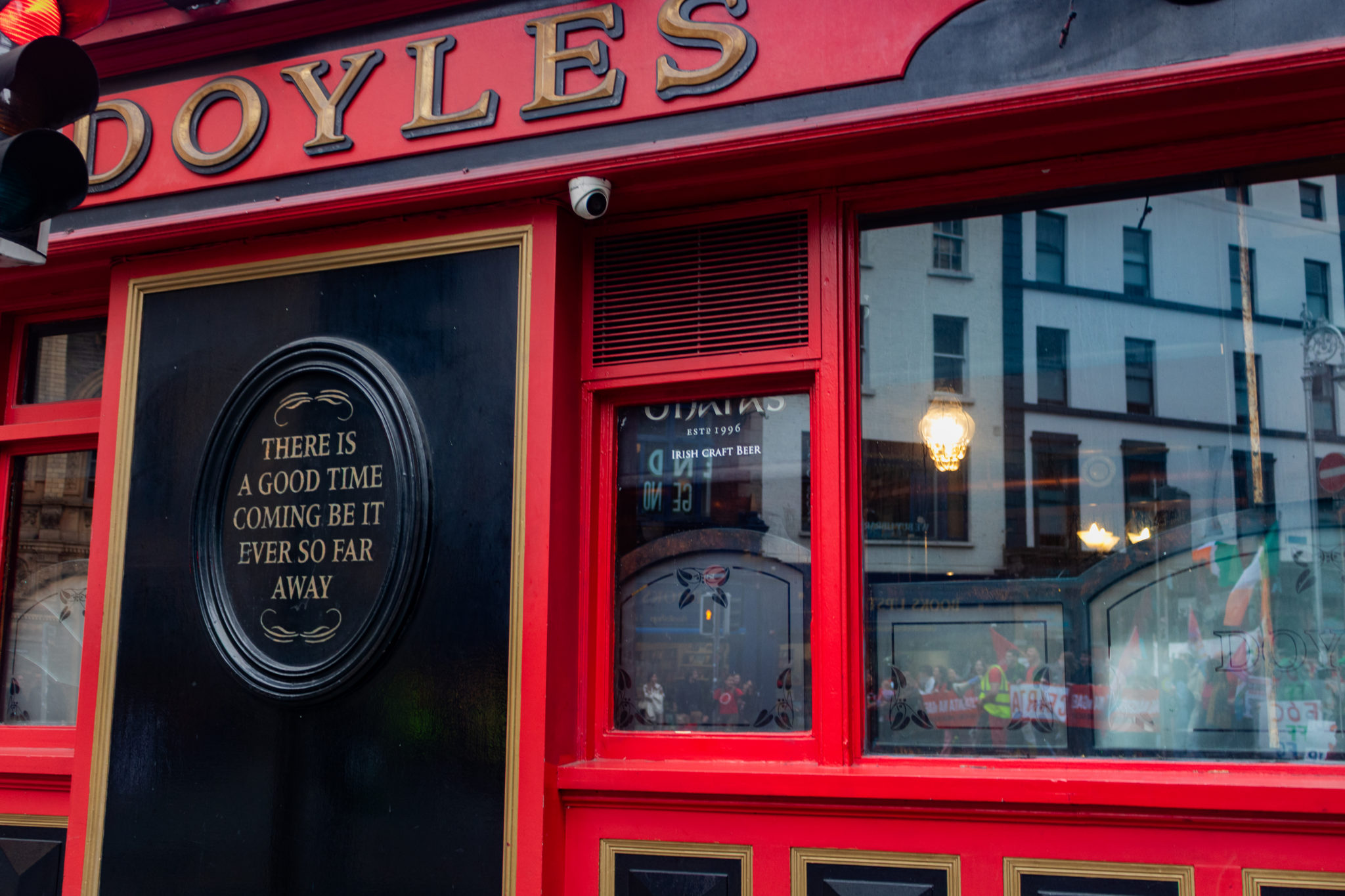 The CEARTA: National Protest for the Irish Language and the Gaeltacht in Dublin on September 20, 2025. Photo: Chloe Craft.
The CEARTA: National Protest for the Irish Language and the Gaeltacht in Dublin on September 20, 2025. Photo: Chloe Craft.
RELATED

- Film And TV
- 16 Dec 25









